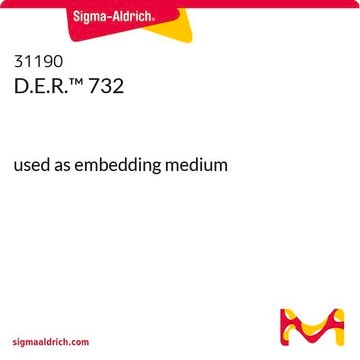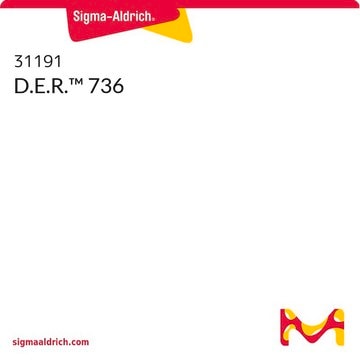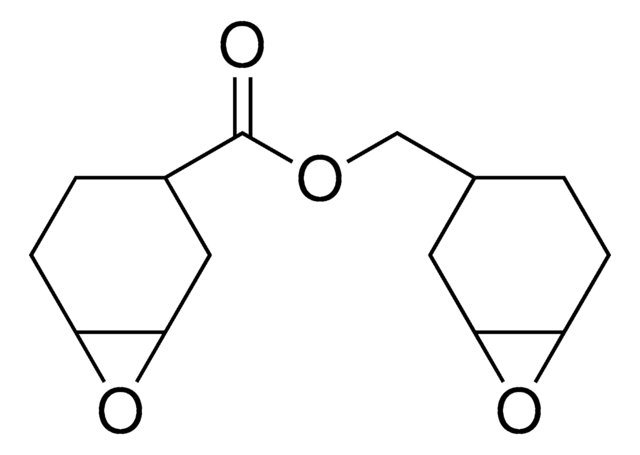31185
D.E.R.™ 332
used as embedding medium
Synonym(s):
Bisphenol A diglycidyl ether, Epoxy-Resin, 2,2-Bis[4-(glycidyloxy)phenyl]propane, 4,4′-Isopropylidenediphenol diglycidyl ether, BADGE, D.E.R.™ 332
About This Item
Recommended Products
SMILES string
CC(C)(c1ccc(OCC2CO2)cc1)c3ccc(OCC4CO4)cc3
InChI
1S/C21H24O4/c1-21(2,15-3-7-17(8-4-15)22-11-19-13-24-19)16-5-9-18(10-6-16)23-12-20-14-25-20/h3-10,19-20H,11-14H2,1-2H3
InChI key
LCFVJGUPQDGYKZ-UHFFFAOYSA-N
Looking for similar products? Visit Product Comparison Guide
Application
Caution
Legal Information
related product
Signal Word
Warning
Hazard Statements
Precautionary Statements
Hazard Classifications
Aquatic Chronic 2 - Eye Irrit. 2 - Skin Irrit. 2 - Skin Sens. 1
Storage Class Code
10 - Combustible liquids
WGK
WGK 1
Flash Point(F)
507.2 - 514.4 °F - closed cup
Flash Point(C)
264 - 268 °C - closed cup
Personal Protective Equipment
Regulatory Listings
Regulatory Listings are mainly provided for chemical products. Only limited information can be provided here for non-chemical products. No entry means none of the components are listed. It is the user’s obligation to ensure the safe and legal use of the product.
ISHL Indicated Name
Substances Subject to be Indicated Names
ISHL Notified Names
Substances Subject to be Notified Names
JAN Code
31185-VAR:
31185-250G:
31185-BULK:
31185-1KG:
Certificates of Analysis (COA)
Search for Certificates of Analysis (COA) by entering the products Lot/Batch Number. Lot and Batch Numbers can be found on a product’s label following the words ‘Lot’ or ‘Batch’.
Already Own This Product?
Find documentation for the products that you have recently purchased in the Document Library.
Customers Also Viewed
Our team of scientists has experience in all areas of research including Life Science, Material Science, Chemical Synthesis, Chromatography, Analytical and many others.
Contact Technical Service









